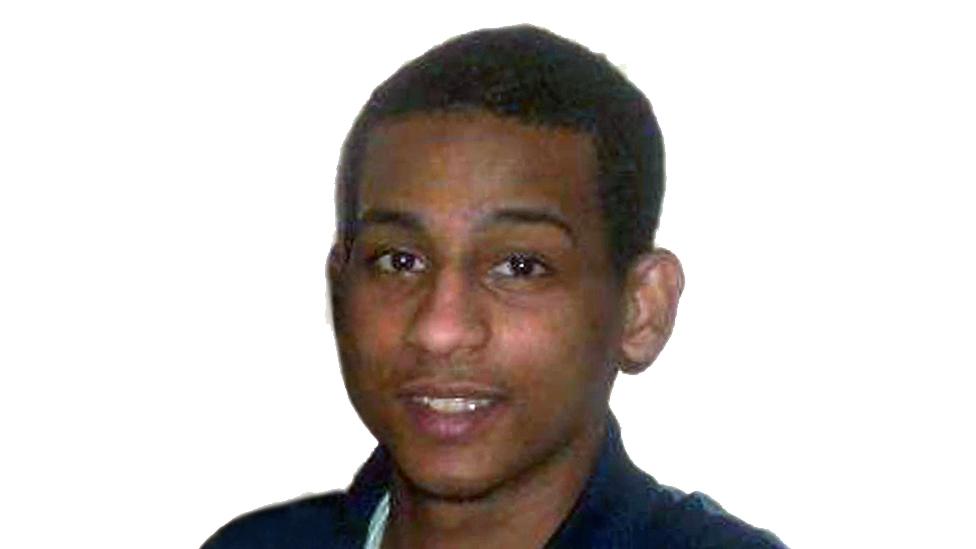Islamic State 'Beatles' duo: Why is their handling significant?
- Published
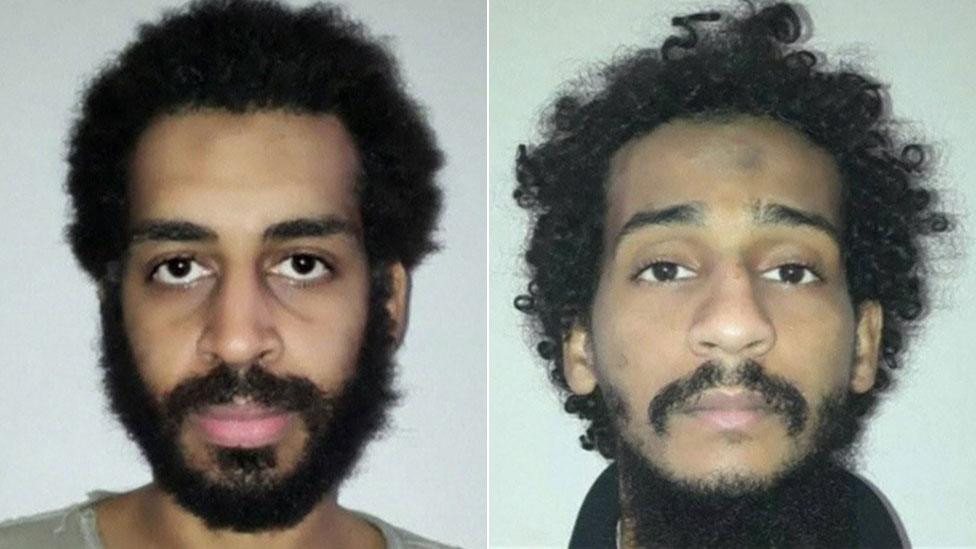
Alexanda Kotey (left) and El Shafee Elsheikh were captured by Syrian Kurdish forces
Of all the violence meted out by the Islamic State group in Syria, the deeds laid at the door of a cell dubbed "The Beatles" by their hostages were of a particular brutality.
The torture and execution of Westerners was striking not just because it was carried out by men with British accents, but also because of the apparent relish with which the blood was shed in public and without remorse.
The accusation against El Shafee Elsheikh and Alexanda Kotey is that they were members of this group.
The United States authorities say "the Beatles" were responsible for beheading more than 27 Western hostages, including British and American journalists and aid workers, and torturing many more.
The two men appear on the State Department's list of "specially designated global terrorists".
The department says Elsheikh "was said to have earned a reputation for waterboarding, mock executions, and crucifixions while serving as an ISIS (Islamic State group) jailer."
It says: "As a guard for the cell, Kotey likely engaged in the group's executions and exceptionally cruel torture methods, including electronic shock and waterboarding."
Kotey also recruited several UK nationals to join the Islamic State group, it adds.
In Britain, the Metropolitan Police counter terrorism command has been investigating the two men for more than four years, compiling 600 witness statements and engaging with 14 other countries.
In the House of Commons last month, Security Minister Ben Wallace said: "We should not forget that the crimes we are talking about involve the beheading, and videoing of the beheading of dozens of innocent people by one of the most abhorrent organisations walking this Earth."
One MP, Andrew Percy, referred to Elsheikh and Kotey as "murderous terrorist scum".
MPs clash over death penalty and IS case
In a letter to the US Attorney General Jeff Sessions in June, Sajid Javid, the home secretary, said: "There is intelligence implicating these two individuals in the kidnap and murder of a number of individuals, including three American and two British citizens."
So the list of accusations against these two men, which they deny, is long and clear. But that does not mean they are likely to face a criminal trial any time soon.
Firstly, they are being held in northern Syria by the Syrian Democratic Forces (SDF). They are not in the hands of the British or American authorities.
Therefore much depends on what the SDF decide to do with them.
Secondly, they are no longer British citizens - as confirmed by Mr Wallace in the Commons last month.
The UK authorities, we are assured, have had no contact with them.
They are accused of being members of a group that killed Westerners of several nationalities, not just Britons. So it is not automatically clear where the two men should be tried.
And thirdly, there is the simple problem that cases of foreign fighters like these can be extremely hard to prosecute.
There is the difficulty in obtaining evidence, finding witnesses and establishing what crimes have been committed in which jurisdiction.
In his letter to Mr Sessions,, external Mr Javid argued that a more successful prosecution would be more likely in the US where laws are different to the UK.
He acknowledged the US "frustration" at this but he insisted: "We believe that a successful federal prosecution in the US is more likely to be possible because of differences in your statute book and the restrictions on challenges to the route by which defendants appear in US courts.
"The US currently has additional charges for terrorism offences which are not available under UK criminal law, and those offences carry long sentences."
The Americans have asked the British to show their hand - requesting what is known as Mutual Legal Assistance or an MLA.
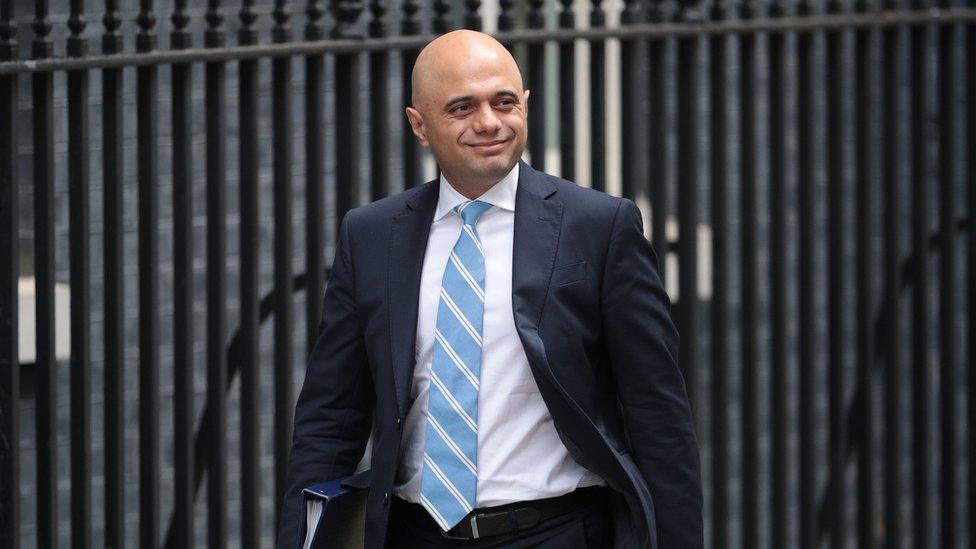
Home Secretary Sajid Javid said Britain would not oppose the use of the death penalty if two alleged IS members were extradited to the US
The British government had acceded to this request by providing intelligence and other information about Elsheikh and Kotey.
But the family of one of the suspects in Britain has sought a legal challenge against this.
They have asked for the courts to judicially review the MLA and as a result, the Home Office has temporarily suspended any cooperation with the US authorities over this case. So more delay there.
The bottom line is that the future of these two men sits in the hands of the US authorities.
I understand that no decision has been taken and British sources say that it is not clear where the US administration is heading on this.
British government sources say that the best outcome would be a federal trial in the US because the other options are worse.
They include the US sending Elsheikh and Kotey to Guantanamo Bay without trial, or the SDF executing them, releasing them or handing them over to the Syrian regime.
So the reason these cases matter is not just because of the British link or the brutality of the crimes, but also because of the precedent it will set for how foreign fighters should be handled.
As Mr Javid concluded in his letter to Mr Sessions: "These individuals have a significantly higher profile than other detainees in Syria due to their crimes and will be held up as an example of how we treat and deal with alleged ISIS fighters."
- Published26 July 2018
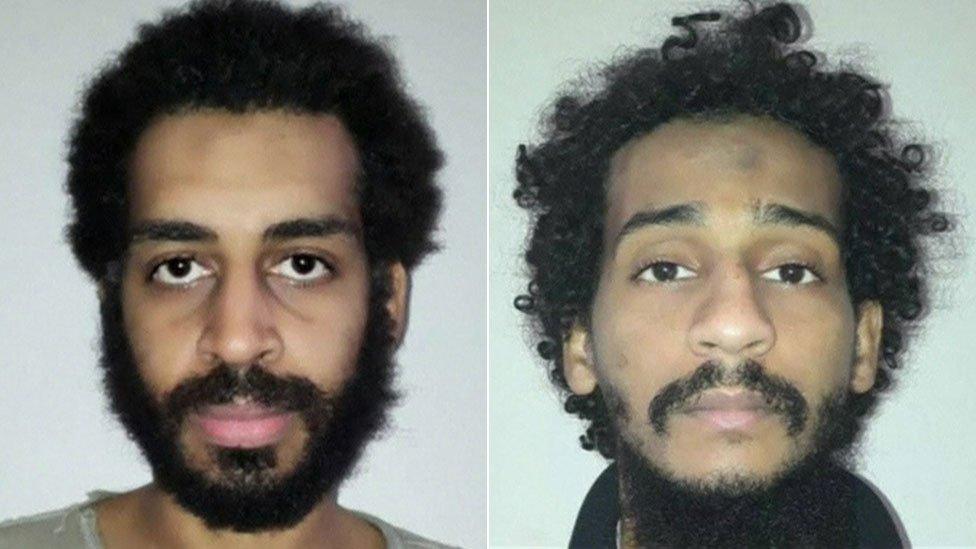
- Published23 July 2018

- Published10 February 2018
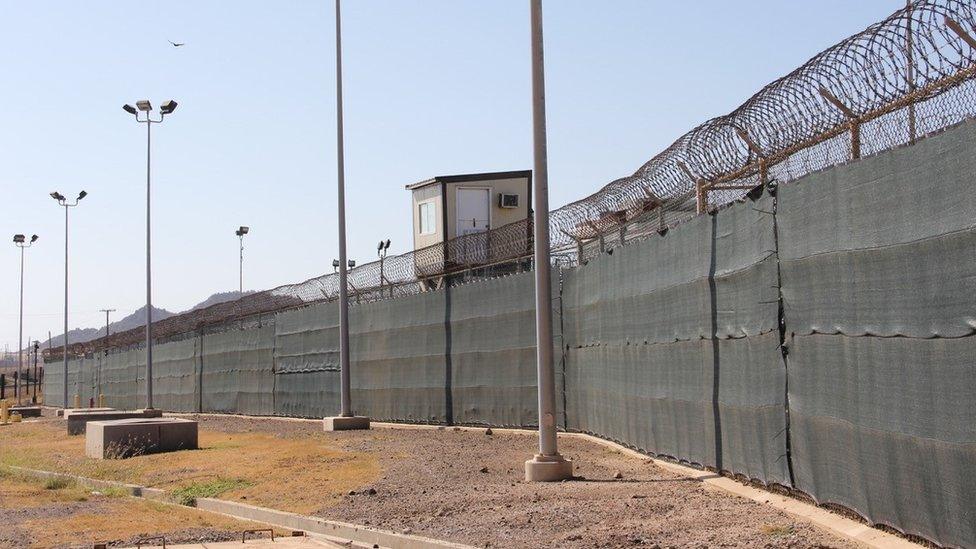
- Published11 August 2022
